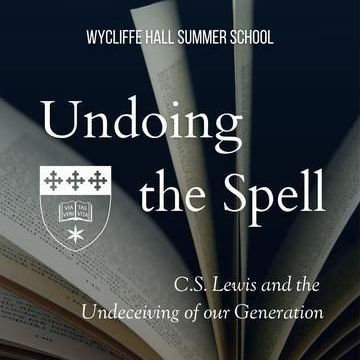Sermon: The Battle is Real (Ephesians 6)
A sermon given at St Martin's Episcopal Church, Houston, in the late summer of 2018 on principalities and powers, the scandal of abuse and what it might mean to stand strong in the Spirit.
Over a decade ago, I had the privilege of being invited to go to Uganda to support the Diocese of Kumi, a diocese in the eastern side of the country, in their mission week. One particular lesson I learned while there, was the very real nature of the spiritual realm. One story that has stayed with me is the testimony of the archdeacon, Joram, who hosted our visit. He told the story of when he went to a smaller village to deal with some witchcraft that had been practiced there. He performed whatever prayer and deliverance was necessary and headed back to town. However he fell off his motorbike halfway along the trip, as he had suddenly become paralyzed and unable to move. He was found and taken home to his wife, who tended to him for months as he could no longer walk, bathe or look after himself. I’m not sure quite how long this lasted, but eventually the Archbishop of Uganda visited the diocese and went see Joram. On walking into his house, he took one look at the paralysed archdeacon and responded by saying “That’s a spiritual affliction! Get up and walk!” And that’s exactly what Joram did. The paralysis left him. In the name of Jesus, he was freed.
Now the story of Joram, even as amazing as it was, fits within what we might think about if we do talk about spiritual conflict and battle. It could almost be lifted off the pages of the gospels themselves. It may feel alien to us as it’s not something we see or hear about on a regular basis. But it does seem to resonate with the stories of Jesus.
Now it may be something we see more often on the pages of the Scripture than in reality, but I absolutely believe in the spiritual realm. I’ve seen enough, experienced enough and read enough of my Bible to know that there are personified evil beings at work in the world who seek to draw all creatures and beings from the love and worship of God.
The Real Battle is with the Powers
But sometimes, even if we do believe in this stuff, we miss the proverbial wood for the trees. We don’t realize the real state of the battle we’re in. The bigger battle that we find as the focus of Ephesians 6. This battle is not with flesh and blood nor just stories of spiritual attack or oppression, but it is with the principalities and powers.
Ephesians 6:12 tells us the battle is with: the rulers, the authorities, the cosmic powers of this darkness and the spiritual forces of evil in the heavenly places.
We are in a struggle with powers and this struggle is universal. Not just folks living in eastern Uganda, but faced by every church, every people, whether we know it or not.
What (or who) are the Powers?
These powers are intangible spiritual entities who are at the same time part of the social and political fabric and order of our existence. And let’s be clear: not all of them are intrinsically evil. They relate to systems of government and social organization. They might include community institutions, organizations, political parties, factions, social movements and so on. But they are distinct and different from individual demonic powers that possess and oppress.
Marcus Barth, theologian and son of Karl Barth, put it this way: “The distinction between the demons and the powers, is that demons affect the individual incidentally, whereas the powers threaten all men at all times.” [1]
The powers that can’t be delivered in Jesus name, like the Archbishop did with Joram in Uganda. Their presence is part of creation, but part of a fallen creation in which they can rebel against God and draw us away from true worship to the worshiping them in His place. This is the heart of the struggle.
The danger of these powers is that they draw us away to worship them as gods, which places them and the earthly institutions they represent as above reproach and beyond accountability. And we become enslaved.
It’s this kind of status the Roman empire wanted in Revelation 13. In it, the infamous beast rises from the sea with ten horns and seven heads and begins to court the worship of people. We find in v.4 that the people quickly take the bait and worship it crying out “Who is like the beast and who can fight against it?”
The human inclination to idolatry is as old as humanity itself. It’s far easier to trust someone wholesale and check our discernment at the door. It’s easier than worshiping God himself because the powers have an earthly component; a leader, a system, a rulebook that we can hang our hat on. It’s reassuring. But whichever authority it is we’re talking about, whether a teacher, parent, sports coach, politician, industry leader or cleric all of their authority ultimately comes from God. All of it is conditional. All are prone to misuse it – and on some occasions it is outrightly abused and turned into a means of control and fertile ground for the devil.
And such powers can draw us all in. We are all susceptible.
It can be tempting to think that only those institutions outside the church are susceptible to delusions of grandeur and misuse of authority. Don’t we in the church worship the One True God? It is the leaders and organizations in the world at large that set themselves up with a godlike status, seeking to avoid any semblance of accountability. The church knows better, surely?
I wish it were so. But, it’s not. The battle is real and starts with the people of God. It’s this kind of delusion that led to the religious elite of Jesus’ day to have the Son of God crucified. They did not like accountability. They did not steward their power with humility and they did not like Jesus drawing attention to their corruption. It is this kind of delusion that we throughout church history when it has focused on power and prestige over sacrifice and humility.
One incredibly painful example of this is the story that has hit headlines again this week. Our sisters and brothers in the Roman Catholic Church have been contending with the reality of the widespread sexual abuse of children by clergy who were entrusted with their care—as well as the systematic cover up by senior leaders. As a survivor of sexual abuse myself, I can tell you there are no words that will be adequate to heal or atone for the wounds the victims suffer. The road to healing takes a lifetime. It is a road where God often seems silent, although never absent, worldlessly saying “I’m holding you, and when you’re ready, we’ll talk.”
The work of healing for the survivors is a long arduous journey and the burden is heavy and—to be painfully honestly—not all make it. The New York Times, reporting on the Pope’s visit to Ireland, interviewed one detective the abuse scandal and he concluded that “It’s worse than the I.R.A., because it’s like putting a bomb into a child’s mind.” [2] The psychological fallout is immeasurable. For those who love survivors of such kinds of abuse, it requires great patience, persistence, and a willingness to help carry the load, even if we don’t always understand it.
But when it comes to the systematic cover-up we’ve heard about, while the factors that play into it are far beyond my pay grade and knowledge base, this much is certain: power without accountability, namely power that sets itself up as a god, such power is a breeding ground for evil. And silence in the face of evil is never the answer. I’m not sure if this quote is rightly attributed to Bonhoeffer, but he is reported as saying in interview: "Silence in the face of evil is itself evil; God will not hold us guiltless. Not to act, is to act. Not to speak is to speak."
We are called to be a people of the truth and justice, who bring light into darkness, we are called to people of confession and repentance, especially with those in leadership. The church of every denomination is called to take seriously the trust given to it and lead the way in serving and caring for the least among us. That’s why St. Martin’s and the Diocese of Texas, like many churches, have a clear safeguarding system set-up. To ensure all in leadership understand the trust they’ve been given. And it is not an easy ask as it challenges us to foster a culture in which we speak honestly about sin and deal with it accordingly: seeking justice, healing and redemption.
Folks, the battle is real.
But the good news? The good news is even more real.
Ephesians is a letter that speaks good news right to the heart of the darkness of evil and sin. It gives us the answer we desperately need: a risen Savior who has defeated all the powers, is seated at the right hand of God and will one day will finally defeat all evil and finish the work he began at the Cross. It looks down the barrel of the gun of incomprehensible evil and says "there is yet hope."
So when Ephesians 6:10 says be strong in the Lord and in his mighty power, it reminds us that the divine power that rose Jesus from the dead is alive and at work today. The Spirit of God is able to equip us with all that we need in a world where we experience the temptation to idolize, to excuse and to ignore the evil around us. If God’s Spirit can raise Jesus from the dead, when he was subject to the worst of death and sin, he can bring that same life to us as we put to death sin and know new life.
And we stand strong in the Spirit by putting on the whole armor of God.
The armor of God in the Old Testament is armor that God himself usually wears. It’s the armor of the divine warrior, the God from heaven who comes and brings victory over evil forces that have caused chaos upon his people. As the divine warrior, God exacts punishment, establishes justice and leads his people in true worship. Isaiah 59 describes God who “puts on righteousness like a breastplate, and a helmet of salvation on his head” and puts on “garments of vengeance for clothing.”
But for the church, in its struggle with the powers, there is armor but there are no garments of vengeance. Instead our armor reminds us of the grace shown to us on the Cross: the breastplate of righteousness, the belt of truth, the shoes of peace, the helmet (perhaps better the 'victory crown') of salvation. All remind us of the God we worship, the righteousness we have in his name, the truth he brings, the peace he offers and salvation he has won. We clothe ourselves in these things and live into them. We remember we are sinners too, but sinners who have tasted new life because of Jesus. And we take up the shield of faith: a big broad, door-like shield that was the first century equivalent of tank when deployed by a team of infantrymen. A shield that protects us from the devil’s attacks and temptations to stray away from Jesus. We have faith: we choose actions that trust in Christ rather than the powers at work in our world.
Lastly, there is the sword of the Spirit, the word of God. These are not only the words of the Bible, but more than that: the proclaimed word of God in the world. God’s word is effective when spoken. And it does not come back to Him empty. The message that that those with power are called to use it sacrificially for those without, that those oppressed have hope for freedom, that sins can be forgiven, that death no longer reigns and that God will one day establish justice over all powers, human and spiritual. It’s the Spirit who conveys this message that speaks to our hearts at the same time convicting us of sin and calling us to new life. It’s this Spirit that can free us from whatever power we falsely idolize. It’s this Spirit that can heal the devastating effects of evil and transform the lives of both abusers and victims. It is this Spirit whom we are called to pray in at all times in every prayer and supplication as we keep alert and persevere.
For the battle is real. But the good news is even more real still.
Amen.
******
[1] Barth, Markus, Ephesians 4-6, (1974, Anchor Bible, vol.34A), p.802.
[2] https://www.nytimes.com/2018/08/23/world/europe/francis-ireland-sexual-abuse-catholic-church.html
Photo by
Jonathan Kemper on
Unsplash
Subscribe to
My Newsletter
Sign up here to receive quarterly updates (and occasional other news blasts) about how ministry is going and our move to the U.K.



